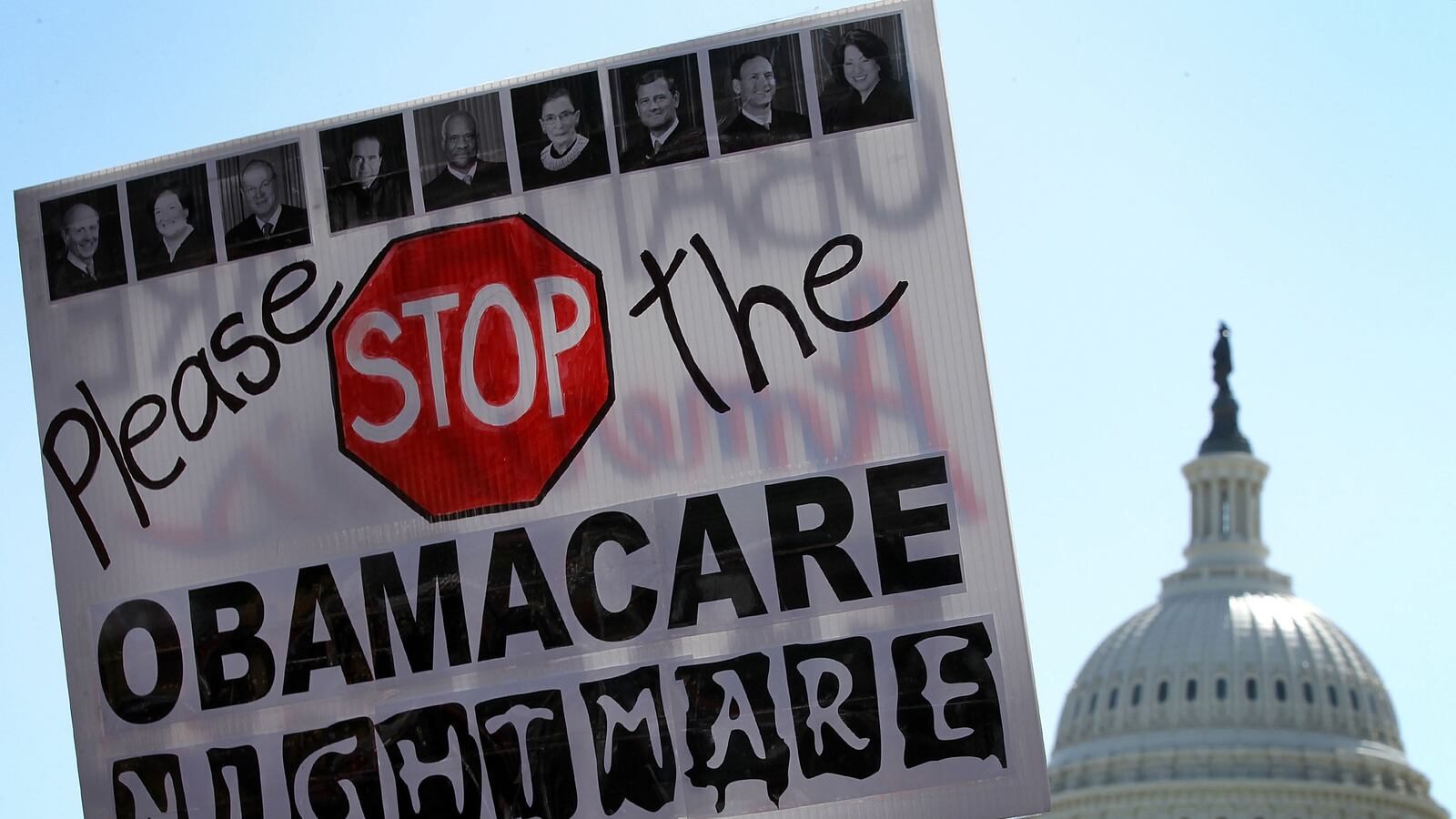Republican opposition to Obamacare isn’t really about how much health care reform will cost or whether people will still be able to still go to their doctors or even about denying their sworn enemy Barack Obama an ounce of political victory. At its essence, Republican opposition to Obamacare derives from a philosophical resistance to being compelled to do anything that benefits others. This radical individualism is not only fundamentally antithetical to traditional conservatism but to the very principles from which our nation was forged in the first place.

Obamacare represents an “assault on individual liberty,” asserts Peter Berkowitz of the Hoover Institution. The Wall Street Journal argues that the Obama administration’s assertion of power under the Affordable Care Act “change the structure of the American government as it has existed for 225 years” to an extent that “endangers individual liberty.” In a blog post for the Heritage Foundation—the conservative think tank that originated the policy ideas at the center of Obamacare—Chris Jacobs says Obamacare “undermines American values”.
Put aside, for a second, the fact that Obamacare is essentially a system for strengthening individual access to private insurance options within the free market. Even put aside, if you can, the fact that not only the Heritage Foundation but Newt Gingrich, Bob Dole, Mitt Romney, John McCain and a host of other Republicans embraced the individual mandate in the past. Conservatives now say they object to the idea that, for the sake of improving health care access and outcomes for everyone and lowering costs as well, anyone should be compelled to purchase health insurance—let alone that such insurance should meet basic standards and include universal preventative care. The government making people buy health insurance, or otherwise face a penalty, is an “unconstitutional violation of personal liberty and strikes at the heart of American federalism” (again, says the Heritage Foundation).
In a perfect world, there would be a version of PolitiFact run by our nation’s Founding Fathers and other traditionally celebrated conservative thinkers, serving as a giant rhetorical ruler with which to slap the wrist of modern conservatives who try to cloak their paranoid anti-government extremism in the conveniently revised avatars of their ancestors.
“If a majority are capable of preferring their own private interest, or that of their families, counties, and party, to that of the nation collectively, some provision must be made in the constitution, in favor of justice, to compel all to respect the common right, the public good, the universal law, in preference to all private and partial considerations.” This was written in 1787 by John Adams, who conservative intellectual Russell Kirk declared the most legitimate conservative thinker among the Founding Fathers. Guarding against the dangers of raw, unchecked individualism, the government can and must compel its citizens to protect the common good.
Adam Smith, godfather of modern capitalism, agreed. Smith made clear that civil societies with laws and governments were necessary to create the pre-conditions for free markets. Government regulations were not anathema to the market but requisite.
And Thomas Jefferson, writing in 1782, agreed: “It will be said that great societies cannot exist without government.”
The Constitution of the United States of America begins by stating we formed our great nation to “establish Justice, insure domestic Tranquility, provide for the common defense, promote the general Welfare, and secure the Blessings of Liberty.” This is not an assertion of radical individualism but rather based on the embrace of mutual association, of the idea that together we can do more than we can do alone, the very principles of nationhood.
In the Federalist Papers, James Madison wrote, “If men were angels, no government would be necessary.” In a nation—in our nation—the whole point is to balance individual self-interest with the common good. Doing so is not antithetical to our nation’s values but, in fact, the entire reason our nation was created in the first place. And believing that as Americans we all have a duty to do things that benefit our fellow citizens and our nation as a whole, isn’t just supporting President Obama and Obamacare. It’s also called patriotism.






